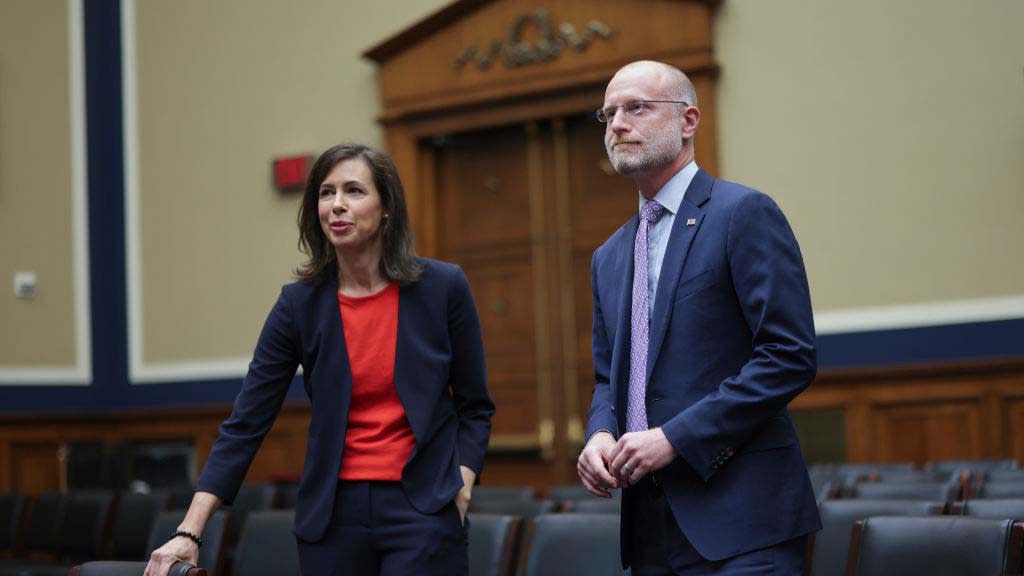FCC Votes To Restore Net Neutrality Regulations

- Oops!Something went wrong.Please try again later.
The FCC, as expected, voted 3-2 along party lines (with Democrats in the majority) to restore network neutrality rules that were eliminated under Republican control and to regulate internet providers under Title II of the Telecommunications Act.
The vote sets up a likely battle in the courts and Congress over what the cable industry’s biggest trade group called “unnecessary and unlawful broadband regulation.” Advocates, including Federal Communications Commission chair Jessica Rosenworcel, favor the return of Title II common-carrier regulation of broadband to guard against “blocking traffic, slowing down content or creating pay-to-play internet fast lanes” as she put it in a “fact sheet” on the agency’s website.
Prior net neutrality rules went away in 2017 when the FCC under then Republican chairman Ajit Pai reclassified ISPs as Title I information services not subject to mandatory access or potentially rate regulation rules.
Michael Powell, president and CEO of NCTA–The Internet & Television Association, began his reaction statement with: “Today’s action is the latest installment of a long-running campaign to establish FCC control of the internet. This is a politically-motivated reversal of prior law, not an exercise in evidence-based rulemaking. There is no evidence of a problem to be solved.” He concluded it with: “The good news is that the FCC’s action will be overturned in court. Congress has always been the appropriate forum to resolve these issues. We can only hope that the damage done to our vibrant internet ecosystem in the meantime will be limited.”
Brendan Carr, one of the two Republican commissioners who voted against the measure, put out his own fact sheet of reasons why putting broadband under Title II regulation was unneeded and could discourage investment in network improvements. “After the FCC imposed Title II rules on the Internet back in 2015, many broadband providers reduced their investments and halted the expansion of their networks,” Carr said. "Indeed, it was the only period of time outside of a recession where broadband investment declined. And after the FCC repealed those rules in 2017, broadband providers set new records for building out Internet infrastructure.”
In teeing up today’s move with a preliminary vote on April 3, Rosenworcel stated the case for Title II. “The pandemic proved once and for all that broadband is essential,” Rosenworcel said then. “After the prior administration abdicated authority over broadband services, the FCC has been handcuffed from acting to fully secure broadband networks, protect consumer data, and ensure the internet remains fast, open, and fair. A return to the FCC’s overwhelmingly popular and court-approved standard of net neutrality will allow the agency to serve once again as a strong consumer advocate of an open internet.”
The agency also has said it will “establish broad, tailored forbearance — including no rate regulation, no tariffing, no unbundling of last-mile facilities and no cost accounting rules — in the commission’s application of Title II to broadband Internet access service providers.”
Rosenworcel at today's meeting noted that after the FCC's net-neutrality rules were shelved, states such as California put in place their own version of regulations prohibiting blocking, throttling and paid prioritization on the web, but said the better approach is to have a national policy overseen by an expert agency. Net neutrality, she said, is supported by 80% of the American public, and the rules being adopted by the commission were "legally sustainable because they track those that were upheld by the courts in 2016, from front to back."

